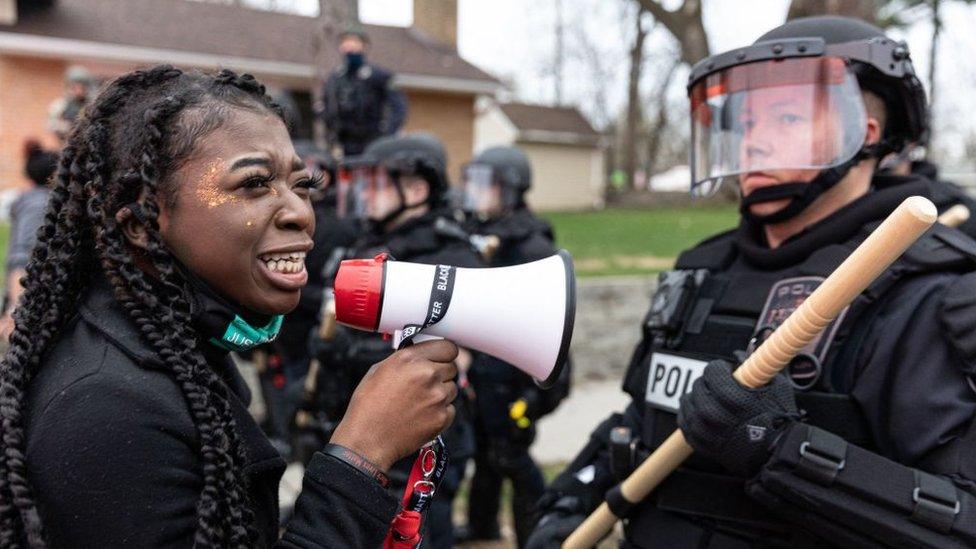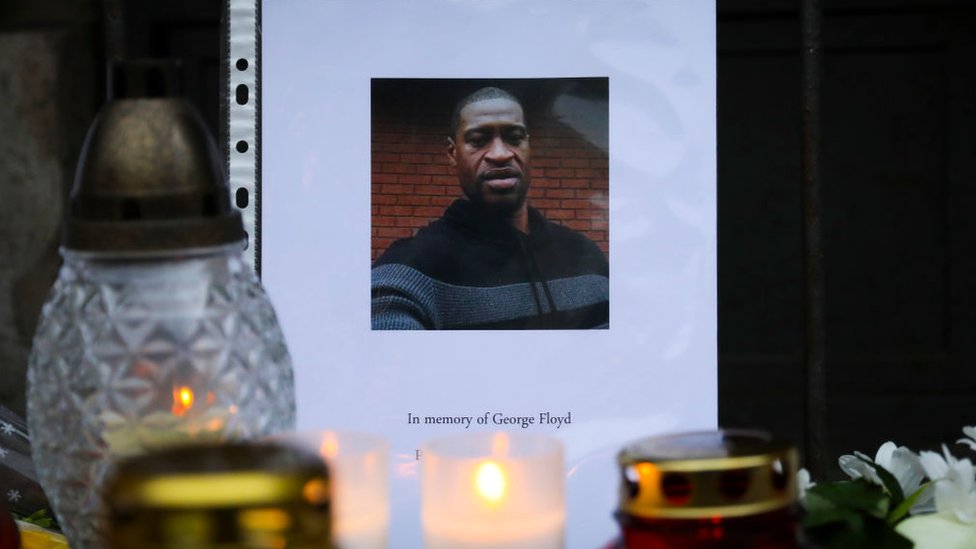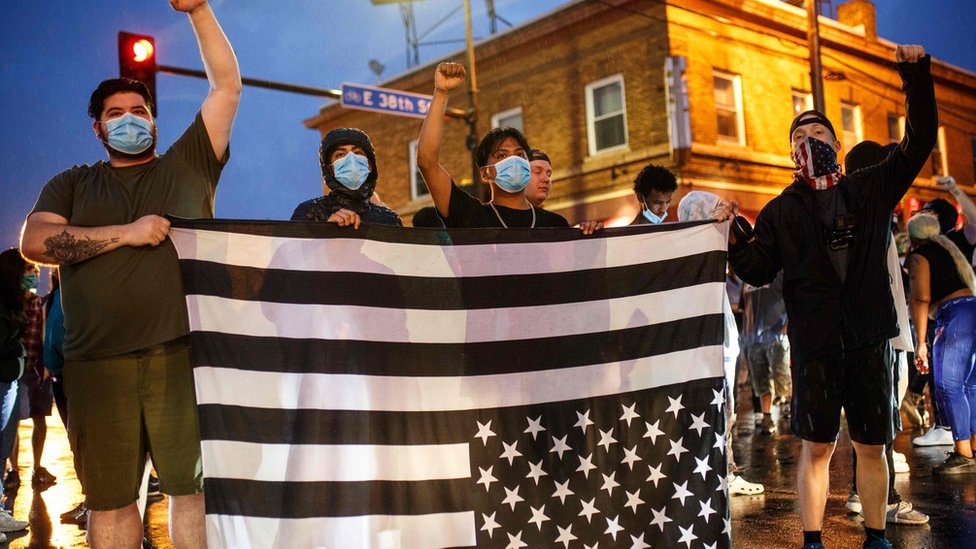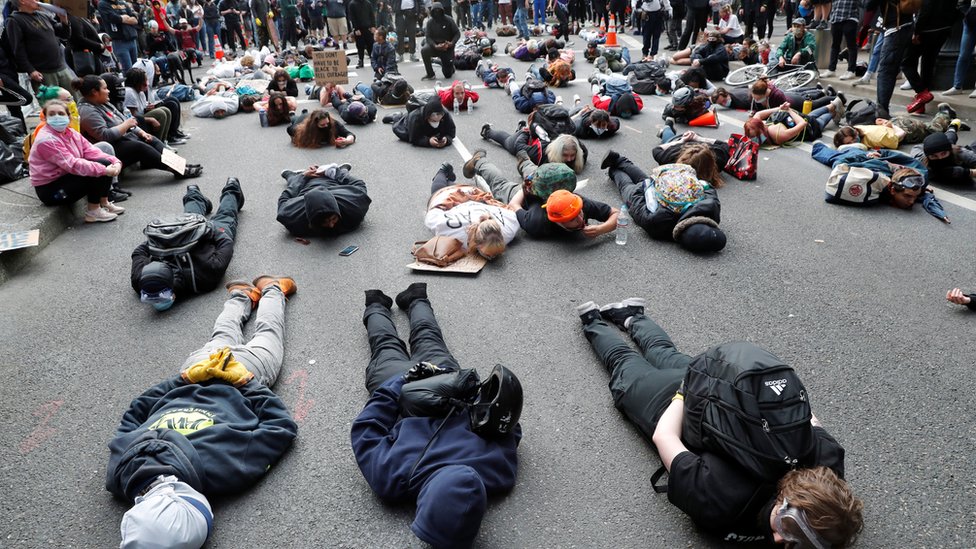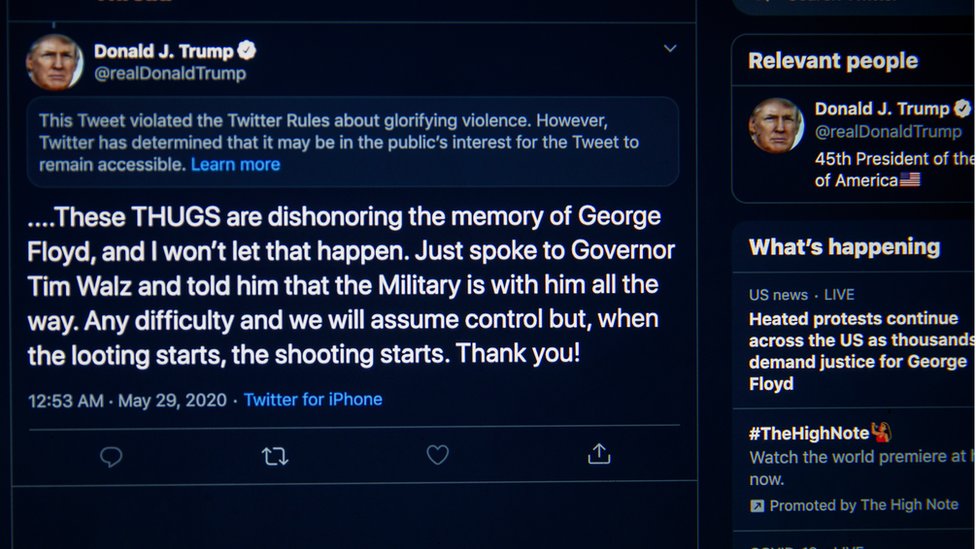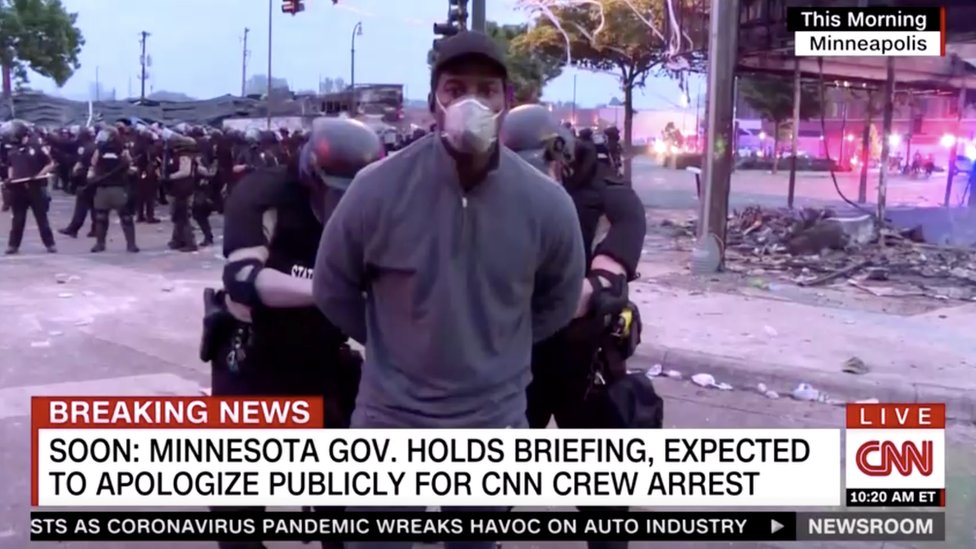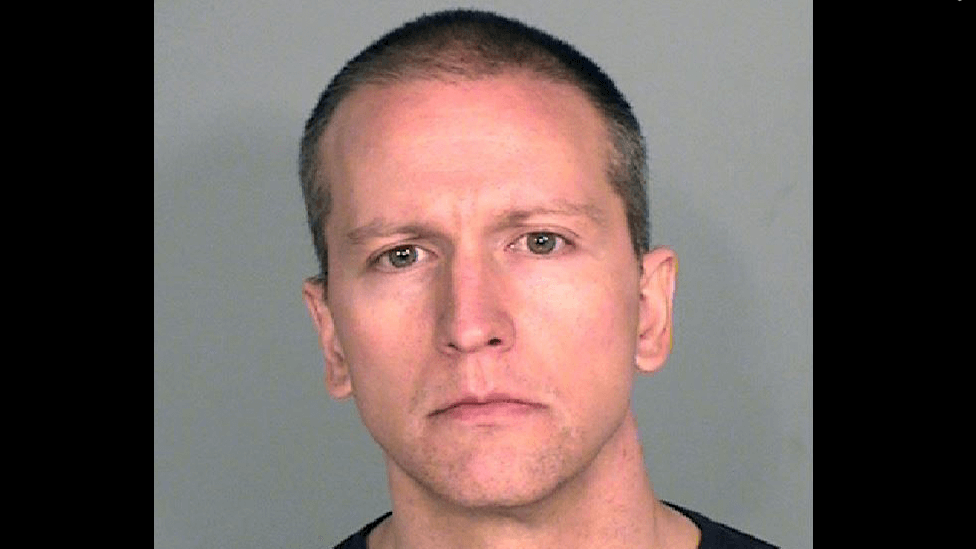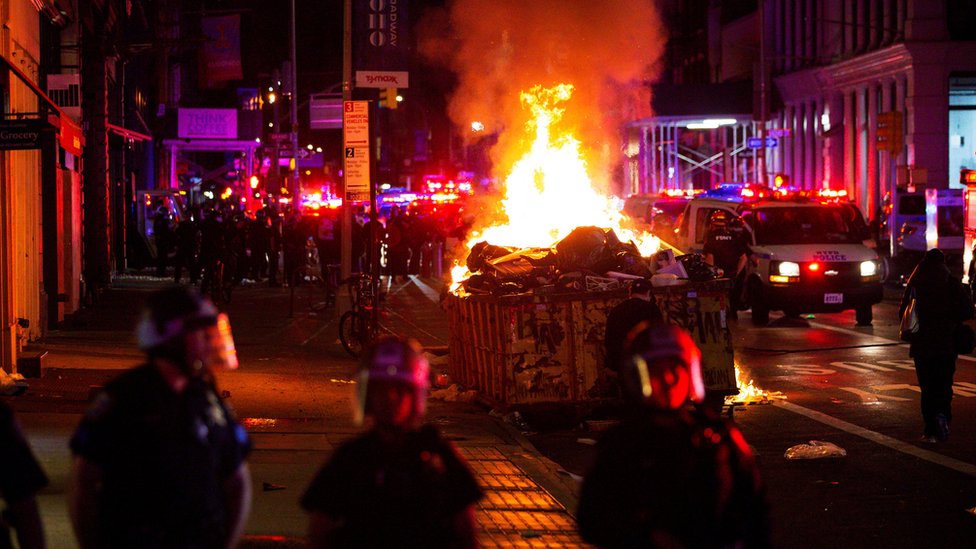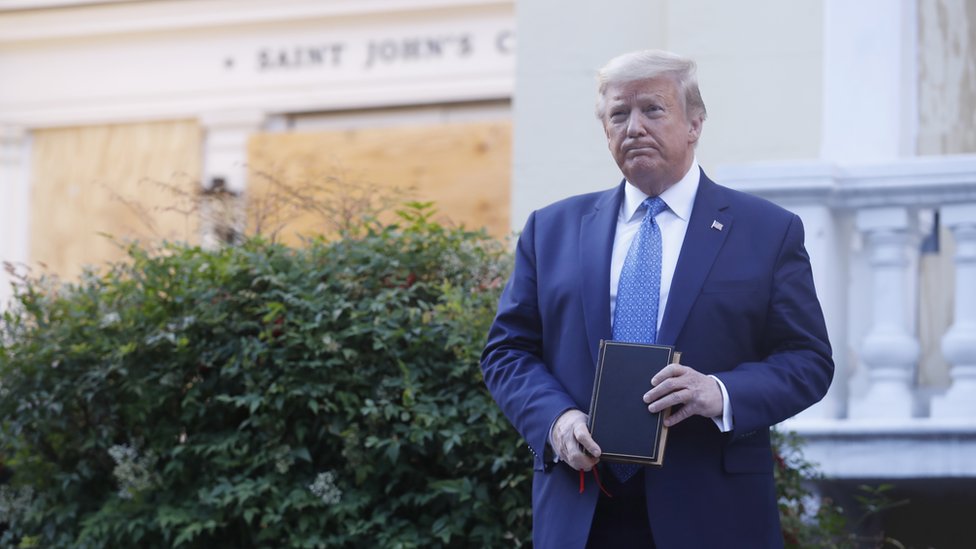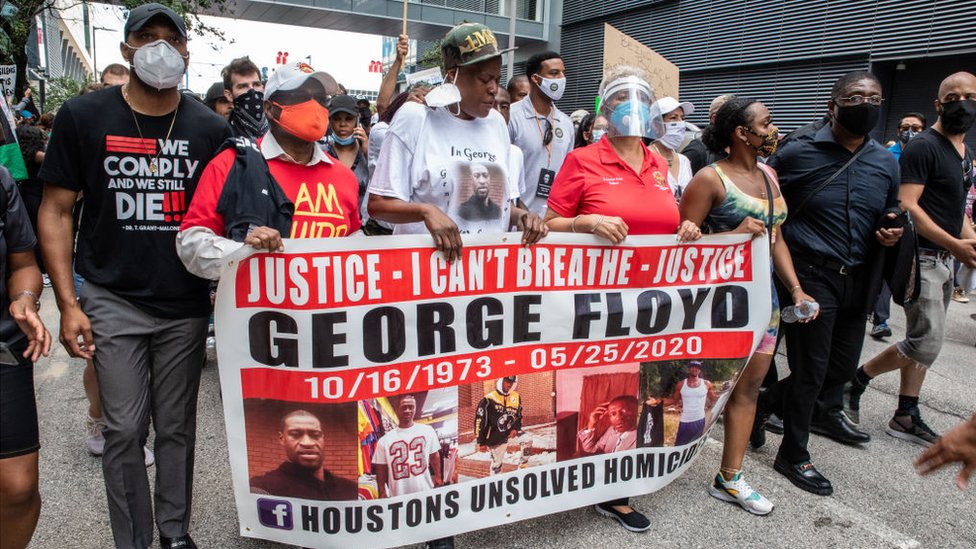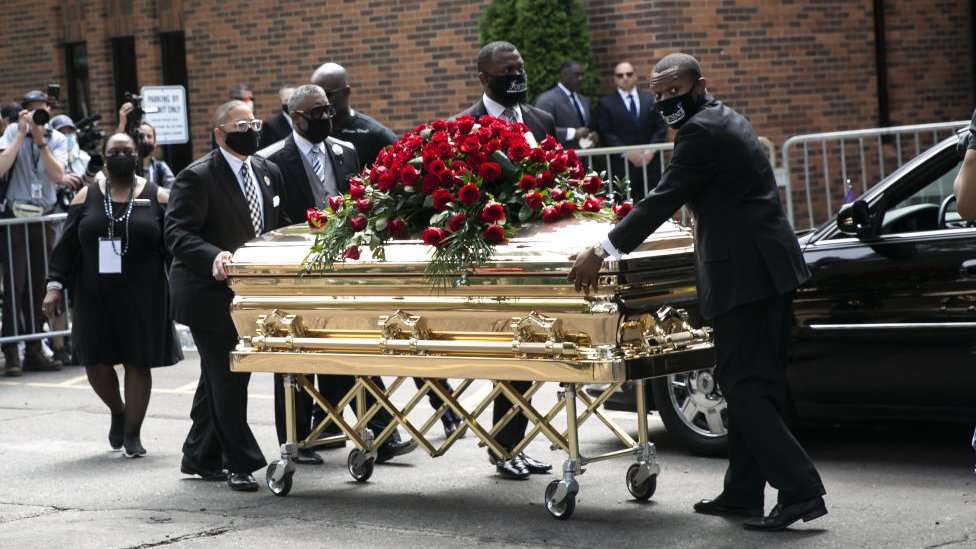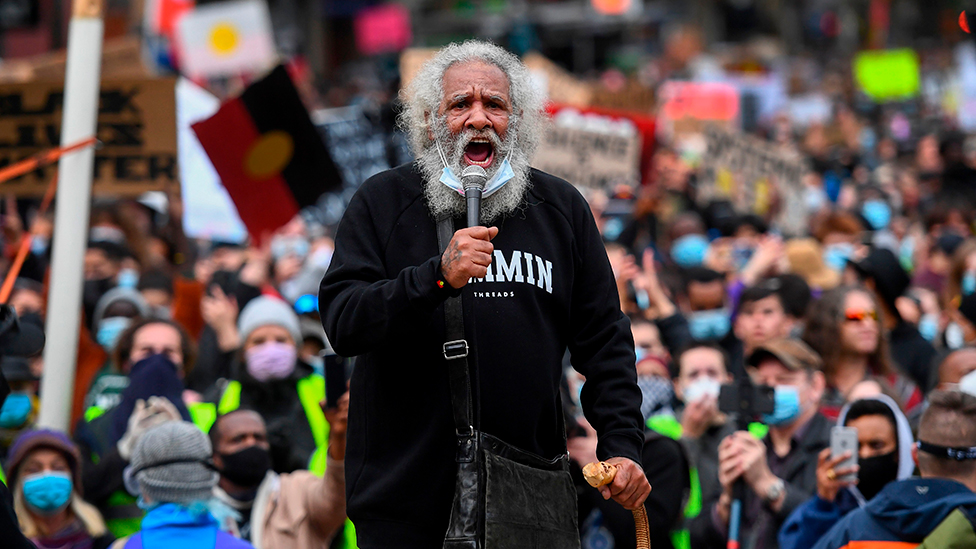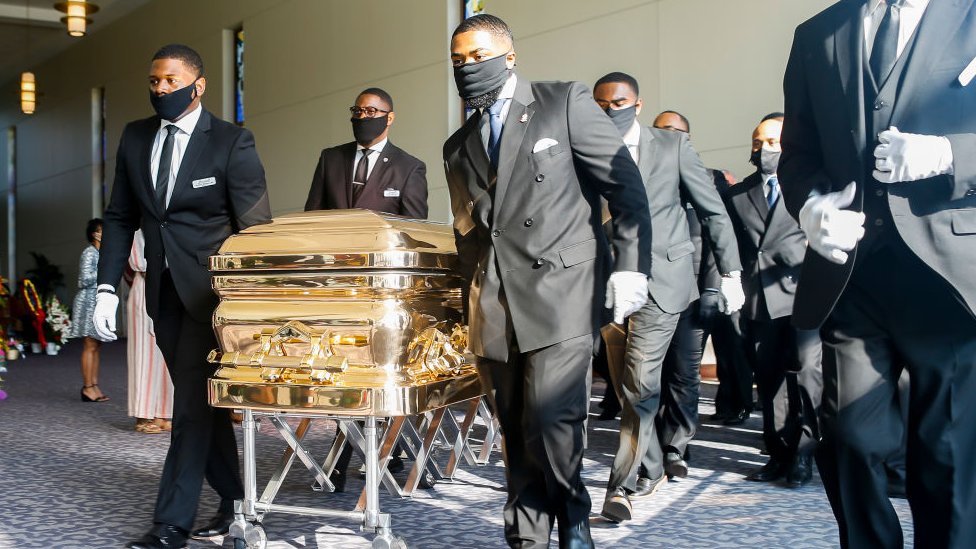George Floyd death: Minneapolis to host first memorial event
- Published
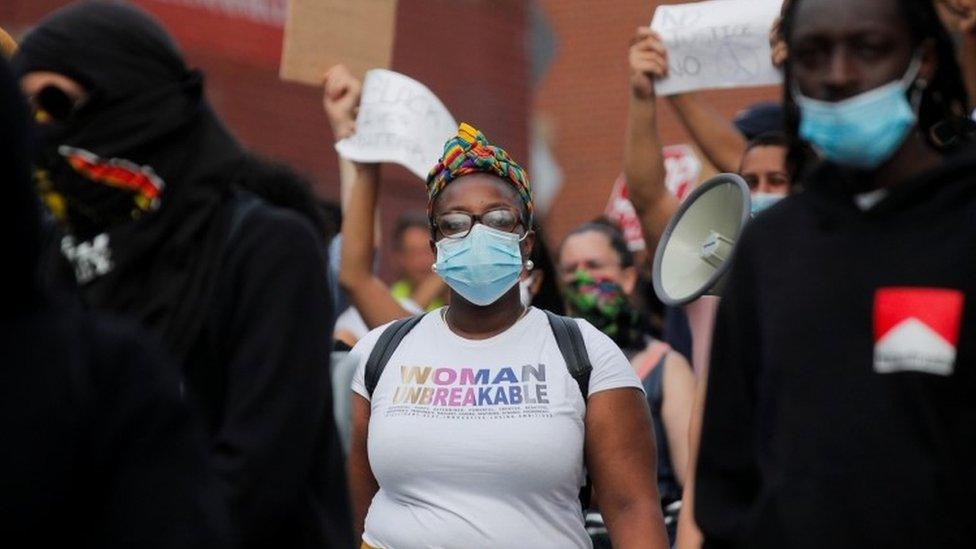
Protests have taken place around the US for several days
Hundreds of people are expected to attend a memorial in Minneapolis for African American George Floyd, who died in police custody last month.
The death of Floyd, whose neck was pinned under a white officer's knee, has sparked huge protests over racism and police killings of black Americans.
The tribute comes despite fears over coronavirus at large gatherings.
New charges were announced on Wednesday against all four of the now sacked officers present at Floyd's death.
The charge against Derek Chauvin has been elevated to second-degree murder while the other three officers, previously uncharged, face counts of aiding and abetting murder.
The vast majority of demonstrations over the past eight days have been peaceful, but some have turned violent and curfews have been imposed in a number of cities.
Former President Barack Obama and Meghan, the Duchess of Sussex, are among senior public figures who have offered their support to the protesters.
They were joined on Wednesday by former Defence Secretary James Mattis, who also attacked his former boss President Donald Trump, saying that he stoked division and had abused his authority in his reaction to the protests.
What will happen at the memorial?
The event, in the northern city of Minneapolis where Floyd died, is the first of several to honour him.
It will take place at a sanctuary at the city's North Central University.
Benjamin Crump, a lawyer for the Floyd family, said it was more than just honouring the dead man's memory, external.
"It's going to be a celebration of life, but it's also going to be a plea to America and a plea for justice that we don't let his death be in vain," he told NBC's Today show.
Veteran civil rights campaigner, Rev Al Sharpton, will deliver the eulogy for the two-hour service, which will start at 13:00 local time (18:00 GMT).
"Out of all the years that I've been marching and protesting and doing eulogies and speeches, I'm more hopeful going to this service than I have been in a long time," Rev Sharpton said on MSNBC's Morning Joe programme, external.
"Because I see more Americans of different races and different ages standing up together, marching together, raising their voices together... That makes me know we're on the brink of real change."

More on George Floyd's death
VIEWPOINT: Tipping point for racially-divided nation
TIMELINE: Recent black deaths at hands of police
CRIME AND JUSTICE: How are African-Americans treated?
HOW IT HAPPENED: The last moments of his life

Rev Sharpton, who met Floyd's family on Wednesday, said he would announce the launch of a new social movement at the memorial, as well as call for new federal legislation to end racial discrimination by police.
Further tributes will be held at Floyd's birthplace in North Carolina on Saturday, and in his home town of Houston on Monday.
What was Barack Obama's reaction to the protests?
Mr Obama sees limitless potential in the faces of his fellow African Americans
Mr Obama said it was vital to channel the momentum built up in the recent protests to bring about change.
In his first video comments since Floyd's death, he said the demonstrations were as profound as anything he had seen in his lifetime, and called on Americans to seize the chance to deal with the underlying problems in society.
"Too often some of that violence has come from folks who were supposed to be serving and protecting you," Mr Obama said.
"I want you to know that you matter. I want you to know that your lives matter, your dreams matter.
"There is a change in mindset that's taking place, a greater recognition that we can do better," he added.
Mr Obama did not comment directly on Mr Trump's handling of the unrest, although he urged mayors around the country to review their use-of-force policies.
George Floyd's ex partner: "Gianna doesn't have a father"
The Duchess of Sussex has also issued a personal message about Floyd's death, saying his life mattered and recent events had been devastating.
What's the background?
George Floyd, 46, was stopped by police investigating the purchase of cigarettes with counterfeit money on 25 May in Minneapolis.
A video showed Floyd being arrested and a white police officer continuing to kneel on his neck for several minutes even after he pleaded that he could not breathe.
Protests erupted and have continued since, across many US cities and also internationally, with rallies on Wednesday in Australia, France, the Netherlands and in the UK, where thousands gathered in central London.
'I'm tired of being afraid': Why Americans are protesting
Floyd's death follows the high-profile cases of Michael Brown in Ferguson, Missouri; Eric Garner in New York; and others that have driven the Black Lives Matter movement in recent years.
For many, the outrage over Floyd's death also reflects years of frustration over socio-economic inequality and discrimination.
Protests over the death continued in dozens of cities on Wednesday night despite widespread curfews.
They have been largely peaceful, with cities such as Los Angeles and Chicago relaxing their restrictions amid hopes that the worst of the violence had passed.
A post-mortem examination has revealed that Floyd had the coronavirus in early April. But officials stressed that this played no role in his death.

- Published2 June 2020
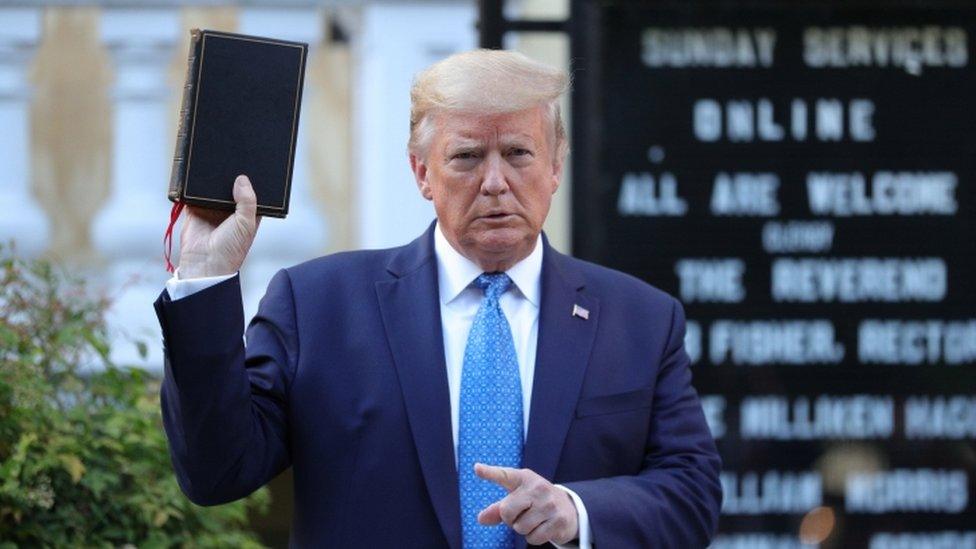
- Published4 June 2020
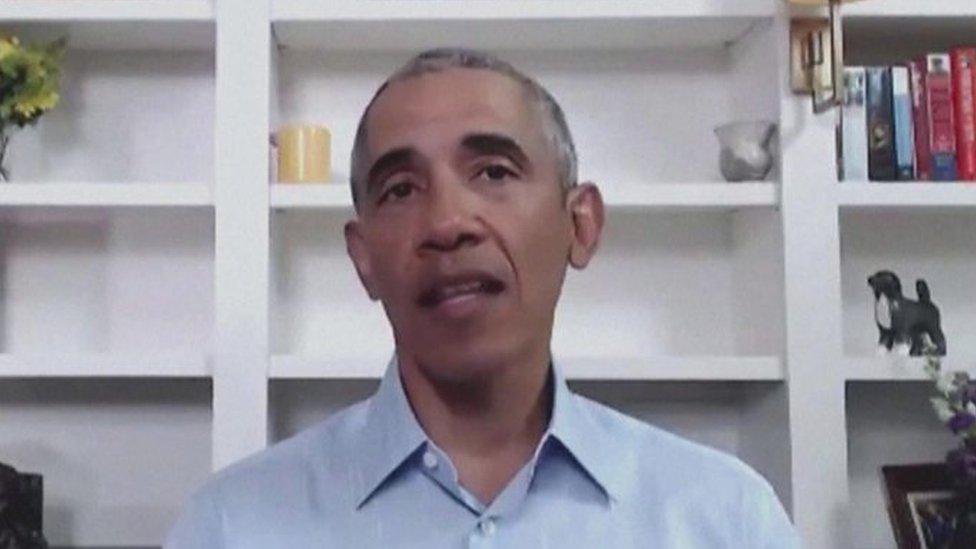
- Published16 July 2020
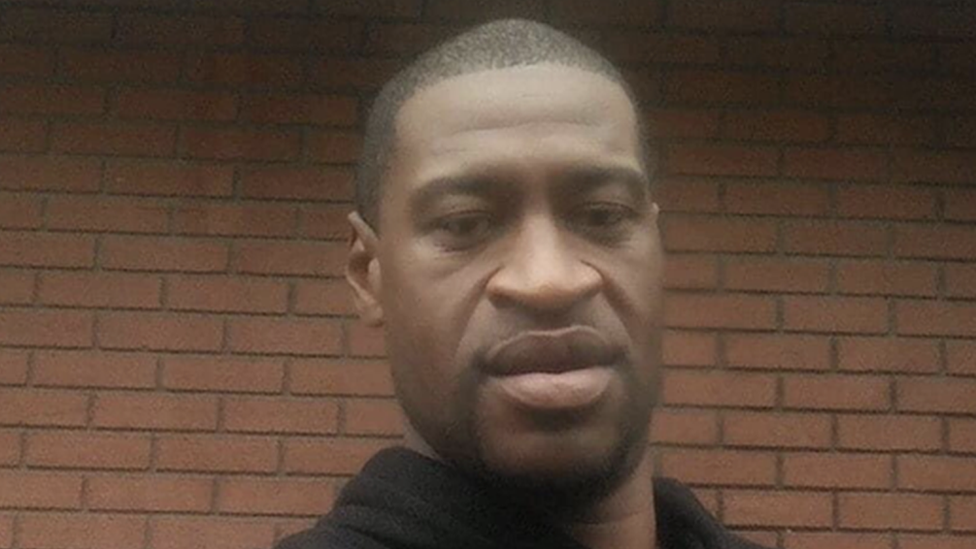
- Published29 May 2020
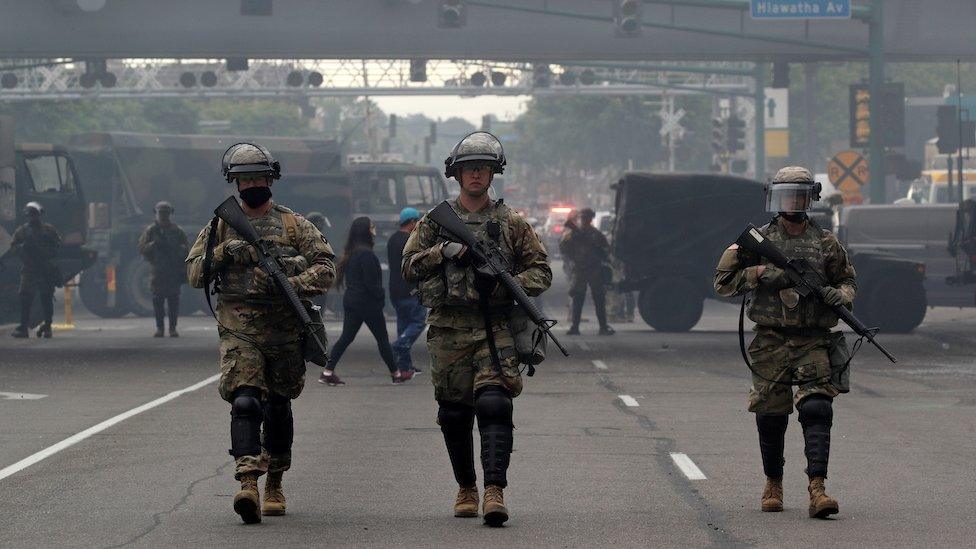
- Published4 June 2020
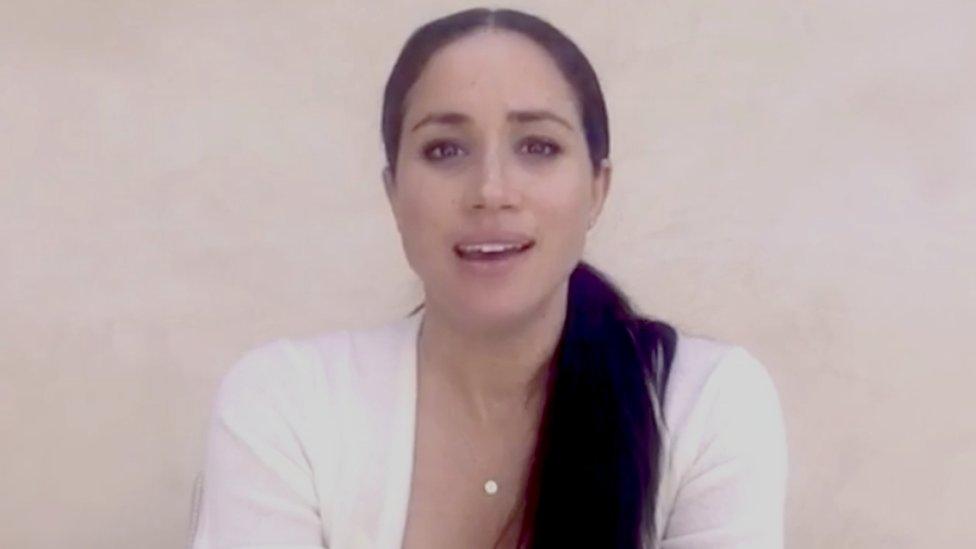
- Published21 April 2021
